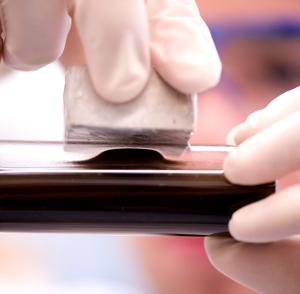Erratic magnets clean wastewater for raw material
 German scientists have detailed new ways to recover valuable substances from wastewater.
German scientists have detailed new ways to recover valuable substances from wastewater.
Phosphorus is a sometimes helpful, sometimes harmful substance which tends toward the latter when it accumulates in waterways.
Humans and most other organic beings need an amount of phosphorus to function. Many processes in the body can only take place if phosphorus atoms are present, but around the world agriculture and industrial enterprise use so much of this element that soil is over-fertilised and waterways are contaminated.
This is why a team from the German Phosphorus Platform (DPP) is working on methods to recover phosphorus from water supplies for re-use as a raw material.
Industries from food and drinks to building materials, detergents, lighting and semiconductors will all welcome easier access to the increasingly elusive element.
“The German Phosphorus Platform is the network for phosphorus... it attempts to bring together all the key players who use, recover and need phosphorus around one table,” explains Prof. Stefan Gaeth, executive manager of the DPP.
Research firm Fraunhofer’s Project Group for Materials Recycling and Resource Strategies (IWKS) says it is working on innovative techniques to extract phosphorus form water.
“We add superparamagnetic particles to the water”, says Dr. Carsten Gellermann, head of business unit ‘Slags, sludges, landfill’ at the IWKS.
When superparamagnetic particles encounter a magnetic field, they themselves become magnetic. However, if the magnet is removed the particles lose their magnetic property and float freely in the water without adhering to each other.
Researchers have attached bonding sites for phosphorus to these particles so that they fish the phosphate anions out of the water and piggyback them.
Using a magnet, the particles along with their phosphorus load can then be removed from the water, leaving it clear of phosphorus.
“This way other hazardous substances, such as toxic heavy metals, can also be removed relatively easily with magnets” explains Gellermann.
The exciting new technique will be demonstrated at the Industrial-Greentech Trade Fair, a subsidiary of the Hannover Trade Fair from April 7 – 11 in Germany.







 Print
Print